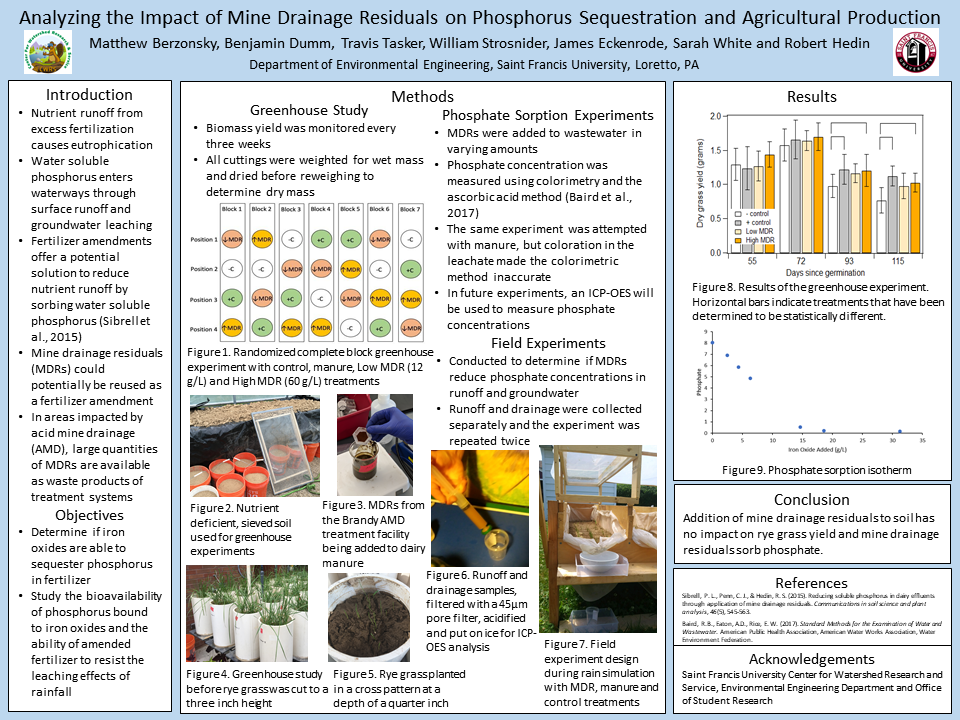Author:
Matthew Berzonsky
Co-Authors:
Benjamin Dumm, Travis Tasker, William Strosnider, James Eckenrode, Sarah White, Robert Hedin
Institution:
Saint Francis University
Abstract
Waterways throughout Appalachia and other areas in the United States are impacted by acid mine drainage. Treatment of mine water often results in large quantities of solids, also known as mine drainage residuals, that are typically disposed by burial, landfilling, or pumping back into mine pools. We hypothesize that mine drainage residuals could be beneficially reused in agriculture applications to sorb water extractable phosphorus, potentially increasing the amount of bioavailable phosphorus for crop growth and reducing nutrient runoff to nearby waterways. To test this hypothesis, a greenhouse study was performed to determine if mine drainage residuals could be used to sorb nutrients from dairy manure, reduce nutrient runoff, and improve ryegrass yield. Before the greenhouse study, sorption experiments confirm that phosphates in manure could sorb onto the mine drainage residuals. Additional leaching experiments are also in progress to determine if the sorbed phosphorus is bioavailable for plant growth. For the greenhouse experiments, varying amounts of mine drainage residuals were mixed with cow manure before application to a nutrient deficient soil. Rye grass was then grown in a greenhouse, weighed and harvested. Treatments included a negative control with no manure, a positive control with manure and manure treated with 12 g/L MDR (low dose) and 60 g/L MDR (high dose). Rye grass yield was monitored in the different treatments for 166 days. The addition of the MDR to the manure, even at the highest rate, had no detrimental impact to rye grass yield. Both MDR and positive control treatments had statistically similar yields but were greater than the yields from the negative control. These results indicate that beneficially reusing MDRs in agriculture could help reduce nutrient runoff without impacting crop yield.
